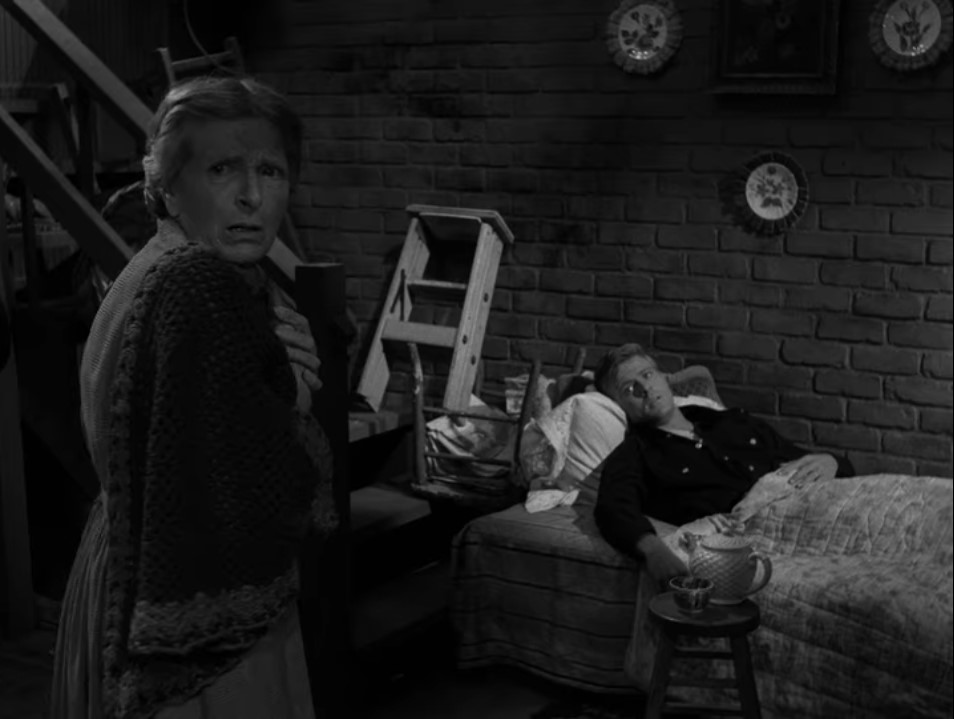Summary:
An old woman, who is hiding from “Mr. Death,” lets a wounded police officer into her home, not realizing it is “Mr. Death” in disguise.
Bechdel Test:
- Only one woman
- To be honest, the two men don’t talk to each other, either
Gender Roles of Important Characters:
-
Old Woman
-
Masculine (6)
- Self-reliant, defends own beliefs, independent, assertive, analytical, self-sufficient
-
Feminine (7)
- Sympathetic, sensitive to others’ needs, compassionate, soft-spoken, tender, does not use harsh language, gentle
-
Masculine (6)
-
Injured Officer/“Mr. Death”
-
Masculine (2)
- Analytical, self-sufficient
-
Feminine (9)
- Sympathetic, sensitive to others’ needs, understanding, compassionate, eager to soothe hurt feelings, soft-spoken, tender, does not use harsh language, gentle
-
Masculine (2)
-
Contractor
-
Masculine (6)
- Self-reliant, defends own beliefs, assertive, leadership ability, willing to take a stand, acts as a leader
-
Feminine (4)
- Sympathetic, sensitive to others’ needs, warm, does not use harsh language
-
Masculine (6)
Analysis:
This episode does fairly well in terms of gender roles. Although it fails the Bechdel test, it also wouldn’t pass a reverse Bechdel test, which I feel is worth mentioning. In addition to this, this episode contains a lot of disrupted gender roles, with two of the characters being nearly half-and-half with their qualities and the character representing death being a male with feminine qualities. The male with feminine qualities representing death could seem suspicious, however, he is kind and allows the woman to finally find peace. In an episode that really focuses on how death is a natural and good part of life, death isn’t represented in a negative way, and this natural feeling is somewhat projected onto his character as a whole. None of the characters are punished for their gender roles, either, as, in the end, everyone is happy and at peace with the world.
Shared by: Grace White
Image Credit: The Twilight Zone, CBS via Netflix
